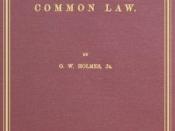From looking at the facts laid out by Bruce in his letter to me regarding his purchase of a second hand Mercedes from Asbury Motors it seems that the most likely action is that of misrepresentation. A Misrepresentation is defined at common law as a "statement of fact made by one party to the other party, which is false. And while not necessarily forming a term of the contract, is yet one of the main reasons which induces the later to enter into the contract" and is also governed by the Misrepresentation Act 1967.
From the facts of the case, according to Bruce's letter, it seems that he is unhappy with the fuel economy of the car he has purchased. In his letter Bruce says that he "...asked a series of questions relating to the car...but the one which sticks in my mind is the one regarding fuel consumption." Bruce refers to the statement made by the salesman, Clarence regarding fuel consumption.
Clarence told him that "he reckoned" that the car would "do" 30 mpg on the open road and 22 mpg around town. However for Bruce to have an action for misrepresentation he must first prove that Clarence's statement was one of fact and was false.
In deciding whether a statement can become a misrepresentation I must look to see, firstly whether the statement is a term of the contract or a mere representation. In this case the facts suggest that Clarence's statement would not form part of the contract, as the standard form contract signed by Bruce makes no mention of fuel consumption. From this evidence it would seem that the courts would not construe the statement made by Clarence regarding the car's fuel consumption as a term of the contract as it was not included in the...


